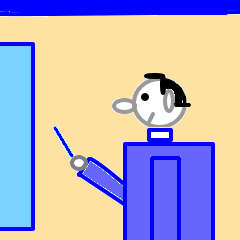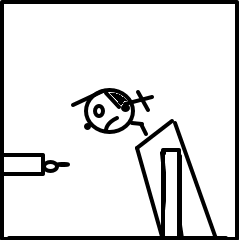Edited by Dan Leo, Professor of Basic Remedial Writing Skills for Native English Speakers, Olney Community College; author of Bozzie and Dr. Sam: The Case of the Missing Balloon, the Olney Community College Press.
Art direction by rhoda penmarq (layout, pencils, inks, recycled crayons by eddie el greco; lettering by roy dismas); for penmarq qonsolidated™ productions.
to begin at the beginning, click here
for previous chapter, click here
|



















































